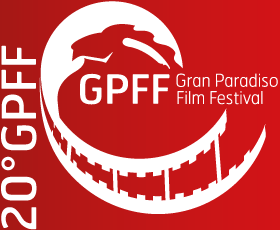The Festival screenings continue: the films display a considerable range of languages, styles, themes and perspectives within the genre of nature cinema. They can truly be considered auteur productions, which never fail to provoke a response in the audience - be it marvel, joy but also indignation.
Tonight the special screening was 'Bovines' by the French director Emmanuel Gras. Attending the unusual event were two cows with their calves from the local farm 'La ferme du Grand Paradis', which actively contributed to the show, interacting with the herd on the big screen. Seating on hay bales, kept warm by a mug of hot milk and a blanket, the spectators could enjoy both dimensions, the cinematic and the real, surrounded by the picturesque scenario of the garden of Maison de Cogne Gérard-Dayné.
”Bovines is a very intense film”, argues Ezio Torta, director and TV author, member of the Festival's Technical's Jury. He adds: 'It's not a film about cows, it's a film about the hyprocisy of language. It's about us denying motherhood to these animals, which we end up exploiting for food.'
The second film scheduled for the Festival's third night was 'The Lost Makay' by director Pierre Stine.
In the afternoon, in the context of 'De Rerum Natura', the Franciscan Father Marco Malagola described Pope John XXIII's thought with intense emotional involvement, recounting his own memories of the Pontiff, alongside whom he worked in his youth. Pope Roncalli's 'great revolution', the Second Vatican Council, was debated with acumen by President Luciano Violante and by the journalist and vaticanist, Ignazio Ingrao, author of 'The secret Council. Mysteries, intrigues and power games of the event which changed the face of the Church'.
The antique villages of Valsaverenche, Nex and Tignet - with their rare examples of rural architecture - and the Lévionaz waterfall formed the natural setting to 'Dislocations', the performance merging theatre, dance and music curated by Teatro Instabile di Aosta.

